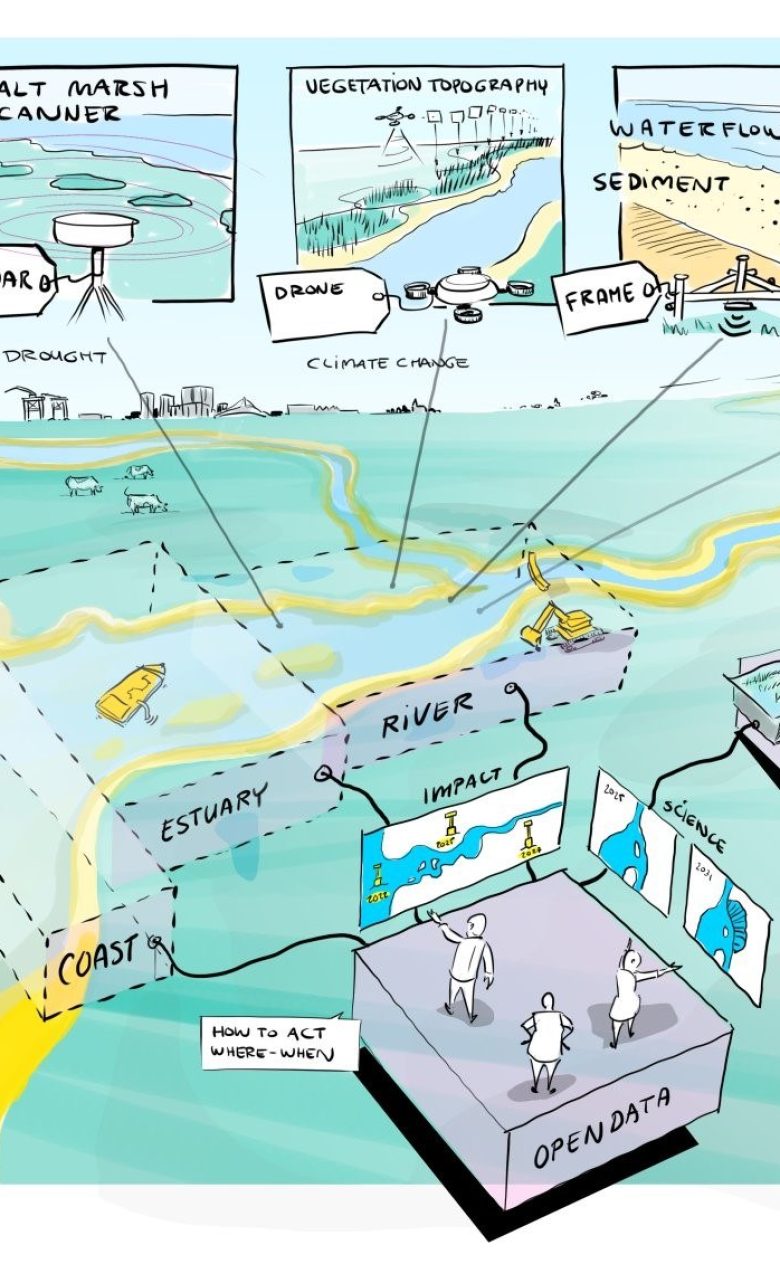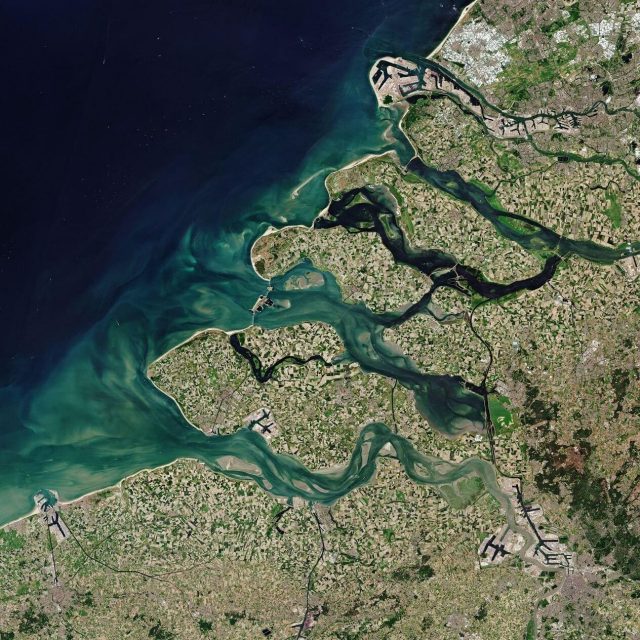Δ-Enigma funded by the Dutch Research Council
Today the Dutch Research Council (NWO) announced that Δ-Enigma is one of the nine projects funded from the National Roadmap for Large-Scale Research Infrastructure budget. Δ-Enigma receives 16 million Euro and encompasses integrated infrastructure for observation, experimentation and modeling of river deltas by the DANUBIUS-NL consortium.

In the Danubius-NL consortium Utrecht University, Technical University of Delft, University Twente, Wageningen University & Research, NIOZ, Deltares and TNO are working together.
Δ-Enigma: The Dutch Delta to the Intensive Care monitor
Deltas and coastal plains are attractive places to live: fertile, flat, open to the sea. These lowlands are, however, also vulnerable to climate change and sea level rise. To better predict how deltas will develop in the future we need a thorough understanding of how organisms, currents, waves, water and sediment together shape the delta landscape. This so-called biogeomorphology lies at the heart of Δ-Enigma. The program provides measurement infrastructure for intensive observational and experimental research of the Dutch Delta. This will improve our ability to predict future development of our delta in times of climate change, to ensure safe and sustainable living for the generations to come.

Δ-Enigma forms a crucial element in the DANUBIUS-NL strategy to strengthen data-driven science in the field of water management, and it will bring the Netherlands globally in a forefront position regarding research infrastructure for studying biogeomorphological processes in engineered deltas.
Δ-Enigma is the basis for the Dutch contribution to DANUBIUS-RI
The International Centre for Advanced Studies on River-Sea Systems DANUBIUS-RI is a pan-European distributed research infrastructure supporting interdisciplinary research on River-Sea Systems. The DANUBIUS-NL consortium develops contributions to three DANUBIUS-RI components: Supersite, Modeling Node and Impact Node. The Large-Scale Research Infrastructure Δ-Enigma will serve as a basis for the Dutch contribution to DANUBIUS-RI.

